Search Results
Showing results 461 to 480 of 1508
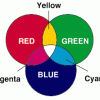
The Primary Colors of Light
Source Institutions
In this activity, learners work in groups of four to explore light. Learners create new colors from the primary colors of light from flashlights covered in theatrical gels or cellophane.
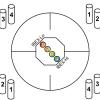
Particle Detection
Source Institutions
By tossing, collecting, and sorting beanbags, learners understand how the IBEX spacecraft uses its sensors to detect and map the locations of particle types in the interstellar boundary.

Wheat Germ DNA Extraction
Source Institutions
This laboratory exercise is designed to show learners how DNA can easily be extracted from wheat germ using simple materials.
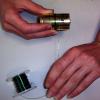
Yogurt Cup Speakers
Source Institutions
Learners build a simple electromagnet, then use this electromagnet to transform a yogurt container into a working speaker. They can connect their speaker to a radio and listen as it transmits sound.

Leaf it to Me
Source Institutions
In this activity, learners observe the effect of transpiration as water is moved from the ground to the atmosphere.
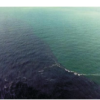
Estuaries
Source Institutions
An estuary is a body of water that is created when freshwater from rivers and streams flows into the saltwater of an ocean.

Secret Goldenrod Messages
Source Institutions
In this activity, learners write invisible messages on goldenrod paper, and make the message appear and disappear using acids and bases.

A Simply Fruity DNA Extraction
Source Institutions
In this activity, learners extract DNA from a strawberry and discover that DNA is in the food they eat.
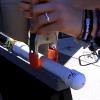
A Spray Spree
Source Institutions
In this activity, learners explore water pressure by conducting an experiment with a garden hose. Learners build a testing apparatus and create PVC nozzles with different sized holes.

Air Cannon
Source Institutions
In this activity (page 1 of PDF under SciGirls Activity: Forecasting), learners will construct an air cannon by cutting a hole in the bottom of a bucket and stretching a garbage bag over the other end
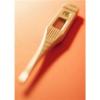
The Ups and Downs of Body Temperature
Source Institutions
In this activity (1st on the page), learners explore circadian rhythms by keeping track of their body temperature.
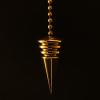
Swing in Time
Learners build and investigate pendulums of different lengths. They discover that the longer the string of the pendulum, the longer the time it takes to swing.
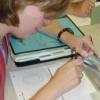
Mirror Image
Source Institutions
In this activity, learners investigate procedural memory.
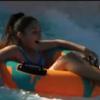
Science at the Waterpark!
Source Institutions
This activity (on page 2 of the PDF under SciGirls Activity: Water Slides) is a full inquiry investigation into speed and motion and takes place at a water park.

Hockey Stick Power!
Source Institutions
This activity (on page 2 of the PDF under SciGirls Activity: Hockey) is a full inquiry investigation into how a hockey stick’s flex affects shooting power and accuracy.

Solar Water Heater
Learners work in teams to design and build solar water heating devices that mimic those used in residences to capture energy in the form of solar radiation and convert it to thermal energy.
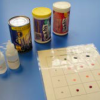
Fruit Juice Mystery
Source Institutions
In this chemistry challenge, learners work to figure out which of four juices are real, and which is just food coloring and sugar.

Trash Talkin'
In this activity, learners collect, categorize, weigh and analyze classroom trash and discuss ways that engineers have helped to reduce solid waste.

How Do Things Fall?
Learners engage in close observation of falling objects. They determine it is the amount of air resistance, not the weight of an object, which determines how quickly an object falls.

Can Crushers
Source Institutions
In this activity, learners conduct an experiment by heating an aluminum can filled with water to investigate air pressure.
